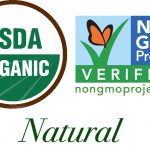Consumer preferences have clearly shifted to a more personal, hands-on experience that requires food companies to maintain trust by being completely forthright about what is in their products. And when a company is involved in a recall, consumers expect a fast response—within days, according to a recent survey. Half of the survey participants expect a company to address a recall within one to two days. In addition, if a brand or restaurant has a recall or contamination that leads to illness, 23% said they would never use the brand or visit the restaurant again and 35% said they would avoid it for a few months and “maybe” come back.
A company’s supply chain can be the weakest link in its food safety program. Learn how to mitigate these risks at the Food Safety Supply Chain conference | June 5-6, 2017
The survey, commissioned by FoodLogiQ and titled, “What Consumers Care About in the Age of Transparency”, polled more than 2000 people. It also found that the same consumers who expect a one- to two-day turnaround in addressing a recall also care a great deal about clarity in food labeling: 57% want to see as much information on a label as possible. This includes country of origin, allergen information and identification of genetically modified ingredients.
With the number of recalls occurring four times as often as they did five years ago, food companies are at an even higher risk of facing a negative financial impact and losing consumer confidence. Maintaining transparency throughout the supply chain is a crucial part of managing consumer expectations and executing effective risk mitigation.
“Open, constant and transparent communication with your suppliers is a must for addressing these issues. After all, you can’t offer consumers the information they crave about your product and processes if you aren’t getting that information from your suppliers and brokers,” state the survey authors. “You cannot expect a supplier to fulfill your requirements around safety and brand promise if you aren’t open about your expectations. It’s a two-way relationship that can make a huge difference in your business.”
The authors offer recommendations on how companies can keep a clear line of communication open with consumers, including:
- Transparency throughout the supply chain, including from where food is sourced
- List all product ingredients and include information about allergens and animal products
- Have open communication concerning mislabeling, and contamination and recalls









